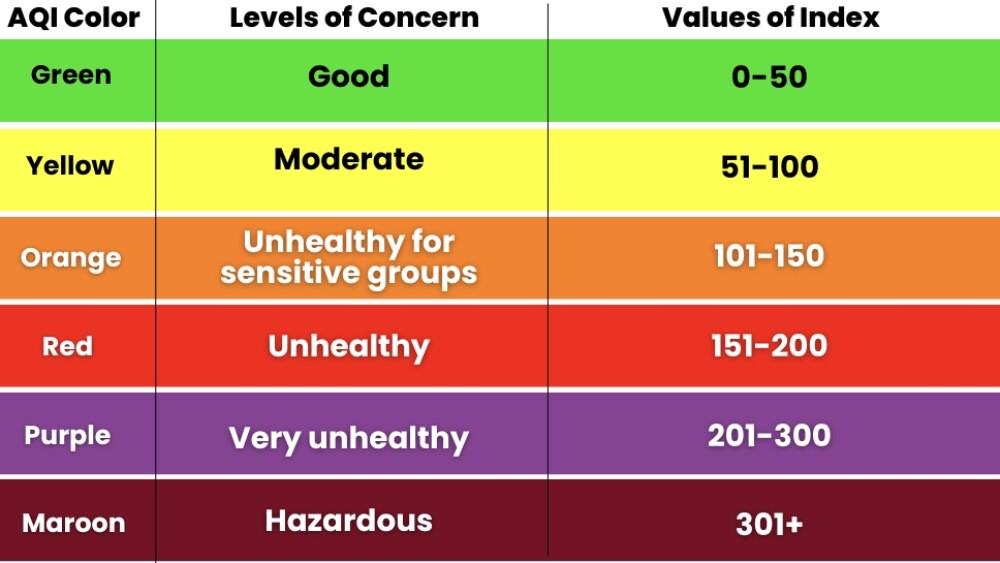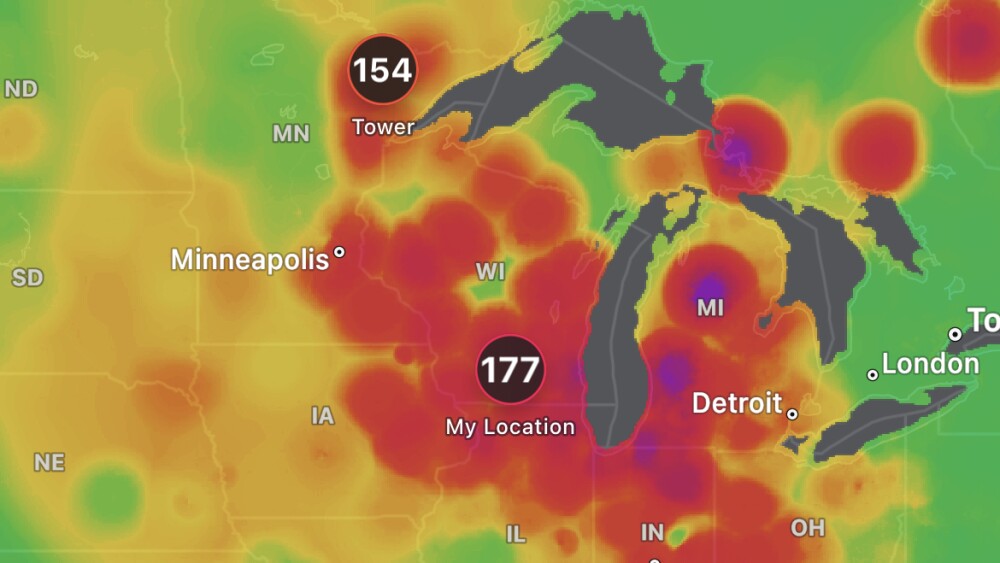A heavy layer of haze caused by smoke from Canadian wildfires has prompted a series of Air Quality Advisories for Madison and a significant portion of southern Wisconsin.
This week, we’re under an Air Quality Advisory until 12 p.m. on Thursday, June 29.
Terms to know
EPA | US Environmental Protection Agency
The EPA’s responsibility is to simultaneously protect human health and the environment.
AQI | Air Quality Index
This is the EPA’s tool for communicating daily air quality. It informs us about the air quality conditions in our area, highlights specific groups of people who may be susceptible, and provides actionable steps to mitigate exposure.
PM2.5 | Particulate matter ≤ 2.5 microns (.0025 millimeters)
We’re experiencing an abundance of these unhealthy particulates of which the smoke from Canada’s fires is comprised.
The EPA establishes an AQI for five major air pollutants regulated by the Clean Air Act:
- Ground-level ozone
- Particle pollution — aka particulate matter, including PM2.5
- Carbon monoxide
- Sulfur dioxide
- Nitrogen dioxide
Our current concern is particle pollution.
AQI Guide
The AQI is divided into six categories with varying levels of health concern. You can find current air quality information in your area using AirNow.gov’s online tool.

AQI Basics for Ozone and Particle Pollution. | Chart via AirNow.gov
For more information on who needs to be concerned and what steps should be taken during Air Quality Alerts, check out AirNow.gov’s Guide for Particle Pollution.
Health risks
Fine particle pollutants can deeply penetrate the lungs. Exposure has been linked to worsened asthma, respiratory issues, and premature death in individuals with heart or lung disease.
Stay/get inside if you’re experiencing:
- Labored breathing
- Coughing
- Itchy eyes
- Irritated sinuses
- Headaches
- Scratchy throat
Vulnerable individuals — people with heart or lung disease, older adults, and children — are especially advised to limit outdoor activities, and reduce strenuous exertion.











